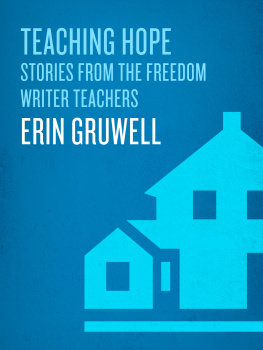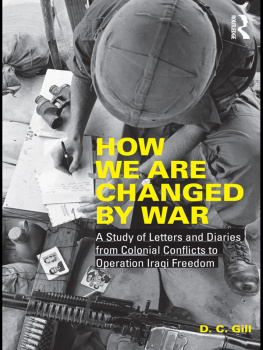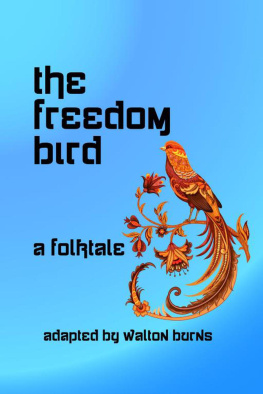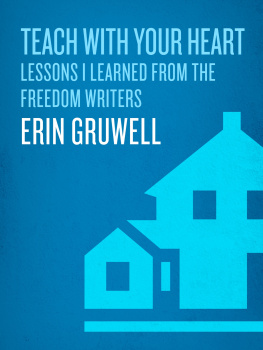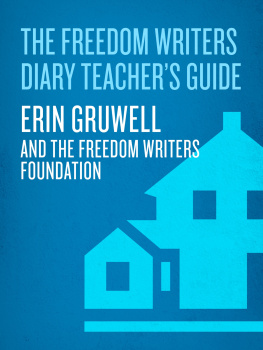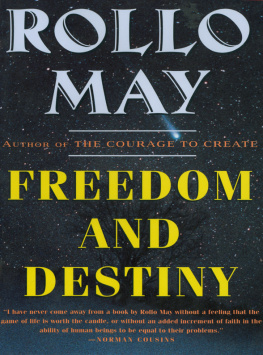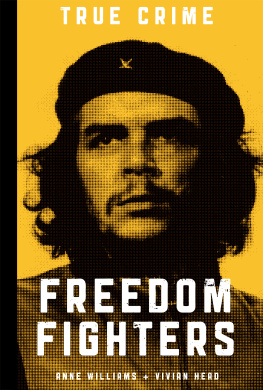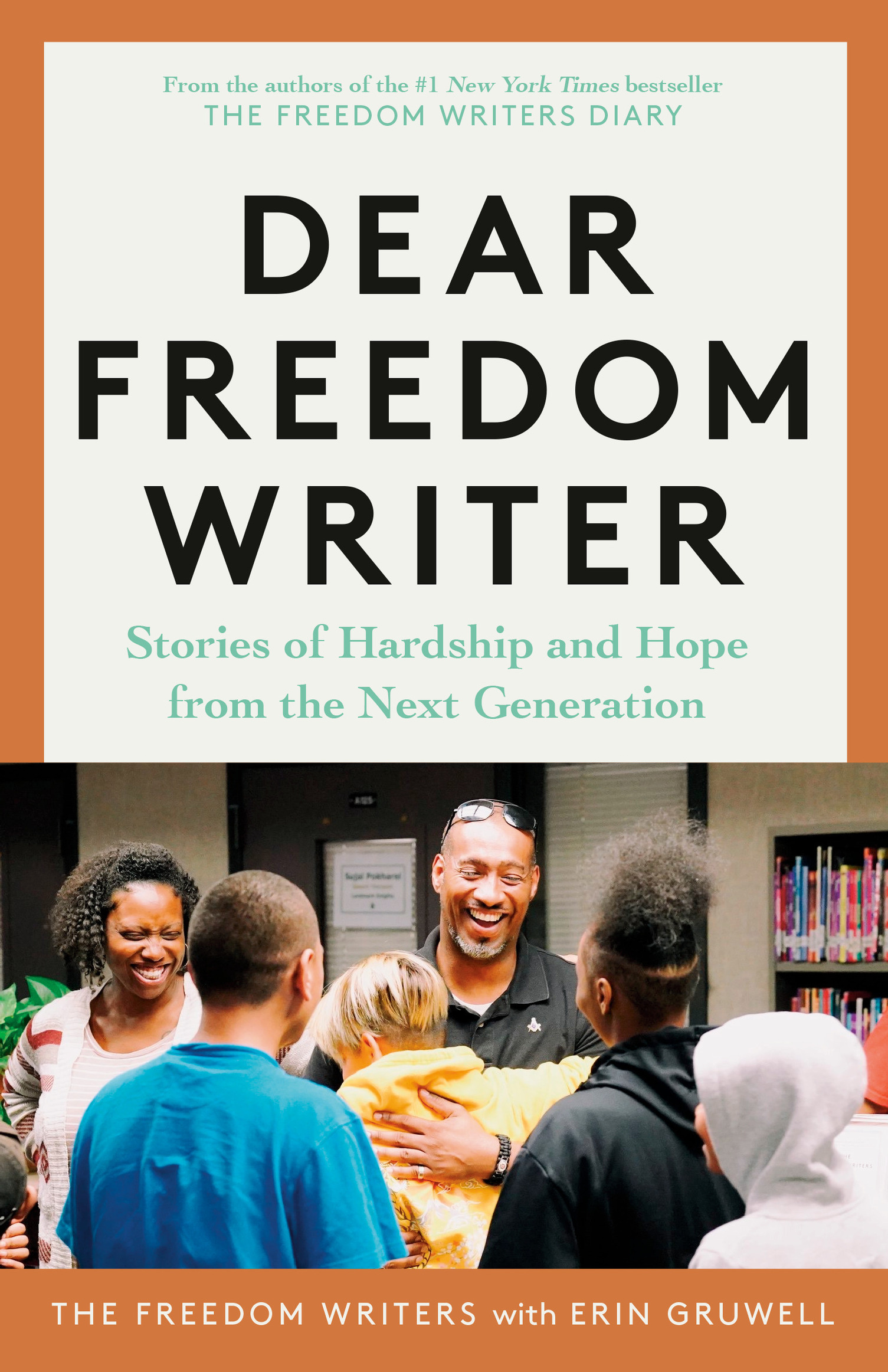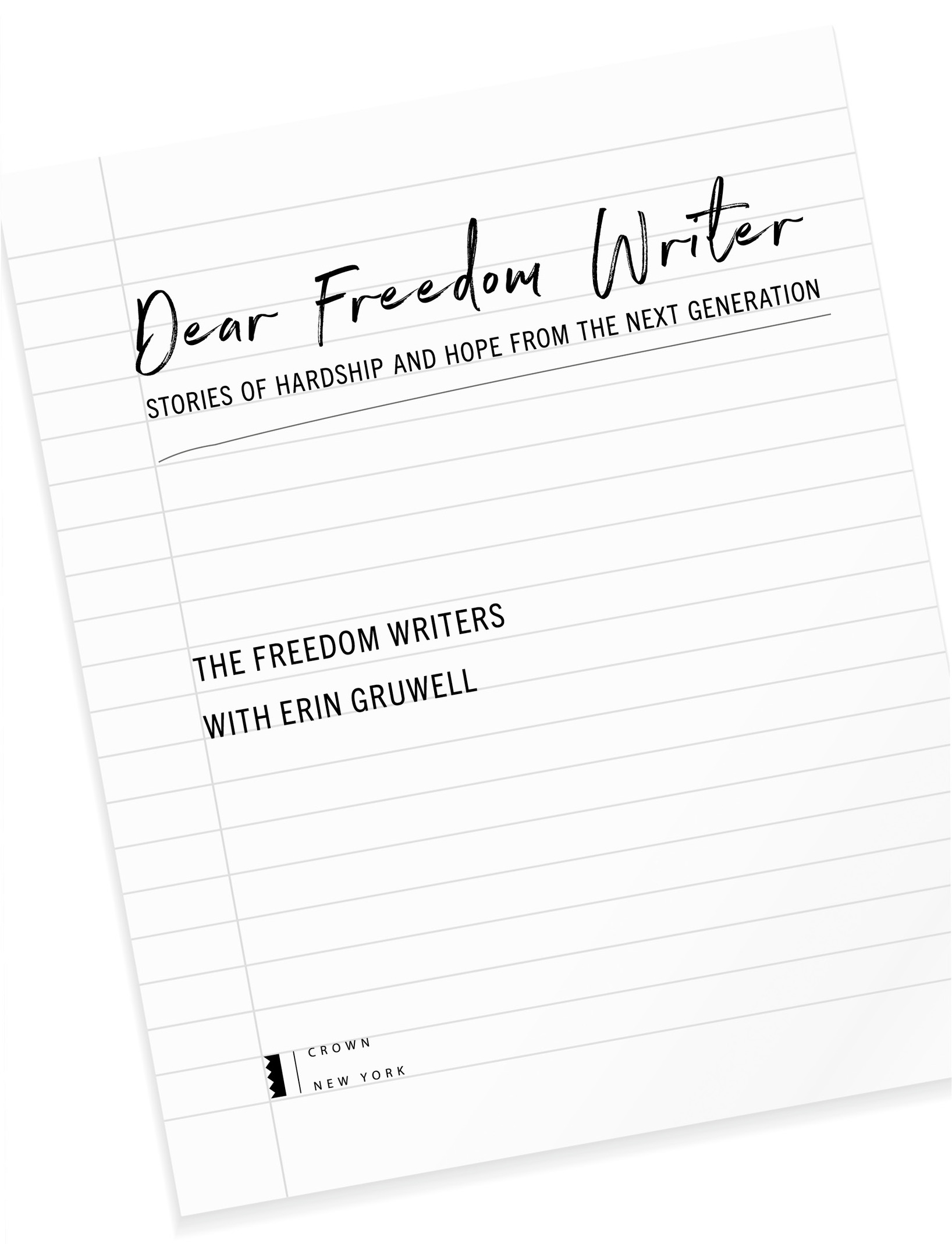Contents
Landmarks
Print Page List
Copyright 2022 by The Freedom Writers Foundation
All rights reserved.
Published in the United States by Crown, an imprint of Random House, a division of Penguin Random House LLC, New York.
Crown and the Crown colophon are registered trademarks of Penguin Random House LLC.
All Scripture quotations are from The Holy Bible, New International Version , NIV Copyright 1973, 1978, 2011 by Biblica, Inc. Used by permission. All rights reserved worldwide.
Library of Congress Cataloging-in-Publication Data
Names: Freedom Writers, author. | Gruwell, Erin, author.
Title: Dear Freedom Writer / The Freedom Writers and Erin Gruwell.
Description: New York: Crown, [2022]
Identifiers: LCCN 2021057194 (print) | LCCN 2021057195 (ebook) | ISBN 9780593239865 (trade paper) | ISBN 9780593239872 (ebook)
Subjects: LCSH: TeenagersUnited StatesDiaries. | TolerationUnited States.
Classification: LCC HQ796 .F76354 2022 (print) | LCC HQ796 (ebook) | DDC 305.2350973dc23/eng/20220107
LC record available at https://lccn.loc.gov/2021057194
LC ebook record available at https://lccn.loc.gov/2021057195
Ebook ISBN9780593239872
crownpublishing.com
Cover design: Ash Vidal
Cover photograph: Christian A. Rivera
ep_prh_6.0_139577570_c0_r0
Contents
As the wedding processional made its way down the rose-petaled pathway, I felt the same nervousness I experienced standing in front of my students, the Freedom Writers, as they entered Room 203 over two decades ago. That day, I wore polka dots and pearls, but today, as the officiant of this wedding, I partnered my pearls with a robe given to me when I received an honorary doctorate degree. I wanted to look official, but standing in the sun in the black robe reminded me of how hot I used to be standing in my old classroom without air-conditioning. I always worried that my students would see me sweat and figure out my impostor syndrome. I worried that the wedding party would see the same.
When the father of the bride stood in front of me, arm in arm with the beautiful bride, he nodded at me as if to say, Im ready for you to ask the question. I smiled. Nodded back. But I had no idea what the question was. Another common sentiment I faced in class. I had missed the wedding rehearsal, and subsequently, my cue. My mother had died a few days earlier, so I was winging it. Another thing I did in class. A trickle of sweat. I was supposed to ask, Who gives this bride away?, to which he would have proudly answered, Her mother and I. Since the only other wedding I had officiated included two grooms, that line was not in my script. The seconds standing before the eager father felt like hours. All eyes were on me. I felt a pang of angst. What am I doing here? In that moment, the mother of the bride, a beloved Freedom Writer, winked at me, as if to say, Everything is going to be okay. While I didnt learn about my faux pas until the father-daughter dance, having my former student assure me not to sweat the small stuff was a welcome role reversal.
The mother of the bride was as confident at her daughters wedding as she was in my class in Room 203. Long before she got married and had children, her love affair was with biology. I knew her calm demeanor would serve her well as she set her sights on the field of medicine. But this brilliant and inquisitive student was deterred from going off to college with her fellow Freedom Writers because she was undocumented. While her immigration status may have slowed down her pursuit of higher education, it didnt stop her from achieving her dreams. She wanted to combat the stigma and show what immigrants can contribute when given a chance to thrive in America (which she drives home as the closing respondent in this book). This dedicated Freedom Writer and mother went on to become a citizen and graduate from a prestigious university with a degree in neuroscience, and is now in the process of applying to medical school, all while her impressionable daughter has watched in awe and taken it to heart. Together, they will both become doctors: the mother to help fellow immigrants and the less fortunate, and the daughter to help abused animals as a veterinarian. Her daughters sense of service resembles her mothers, and because they humbly serve those who are often invisible, this wedding was a time for both the mother and the next generation to be seen and celebrated. I saw her Freedom Writer family sitting in the audience, wiping away tears with one hand while holding a parasol to block the sun with the other.
This same cadre, just days earlier, had rallied for me. They wiped away my tears and lifted me up when my mother had passed. My mother lost her struggle with Alzheimers as the authors of this book and I were taking a virtual tour of Anne Franks attic on what would have been Annes ninety-second birthday. Hours earlier, I was not sure my mom even knew who I was anymore. She did not speak while I sat at her bedside. But as I was leaving, I said, I love you, Mommy, to which she replied, I love you too. Now, as I stood in front of the bride and groom, the cycle of life was not lost on me. The Freedom Writers are a reminder of what love looks likebiological or otherwise. Be it celebrating the best of humanity or grappling with grief, the Freedom Writers and I have lived through many milestones together. What started as a class of adversaries twenty years ago has now become a chosen family.
When my students initially entered Room 203 in Long Beach, California, they felt invisible. They were scarred, bruised, and broken. Following the civil unrest in their community stemming from the Rodney King verdict, many of them felt vulnerable, unjustly labeled, and destined to become part of the school-to-prison pipeline. The feeling of being alone is where our story started. Luckily, creating a community and writing their narratives is what allowed them to heal and, in time, become whole.
When my students chronicled their stories in The Freedom Writers Diary, none of them expected that their book would become a beacon for other students who also felt alone, invisible, and on the margins. And yet The Freedom Writers Diary has now been read in sacred spaces, taught in crowded classrooms, and provided as a place of solace for those who are hurting. The Freedom Writers exceeded expectations by graduating from high school and pursuing higher education. Their inspiring transformation was chronicled in a major motion picture and an Emmy Awardwinning documentary on PBS. It provides an example of realized potential for teens and their teachers alike who often find their identity within the pages of the book. It provides a place of refuge for some and a source of solidarity for others. Two decades later, my authors find themselves as the catalysts for budding authors who are now facing their own fears and telling their own truth.
The spark for Dear Freedom Writer came from a tried-and-true activity the Freedom Writers and I do when we train teachers on our innovative, student-centered, project-driven lesson plans and engaging social-emotional curriculum. Since the publication of our book, we have been bringing educatorsteachers, administrators, superintendentsto our community in California to show them how to bring our lessons to life in their own classrooms, wherever they may be, because the themes we touch upon are truly universal. Our objective for these newly minted Freedom Writer Teachers is to learn from Ms. G (the moniker my students bestowed upon me) and our collective Freedom Writer experience, so they can return to their communities and teach hope to the next generation.


